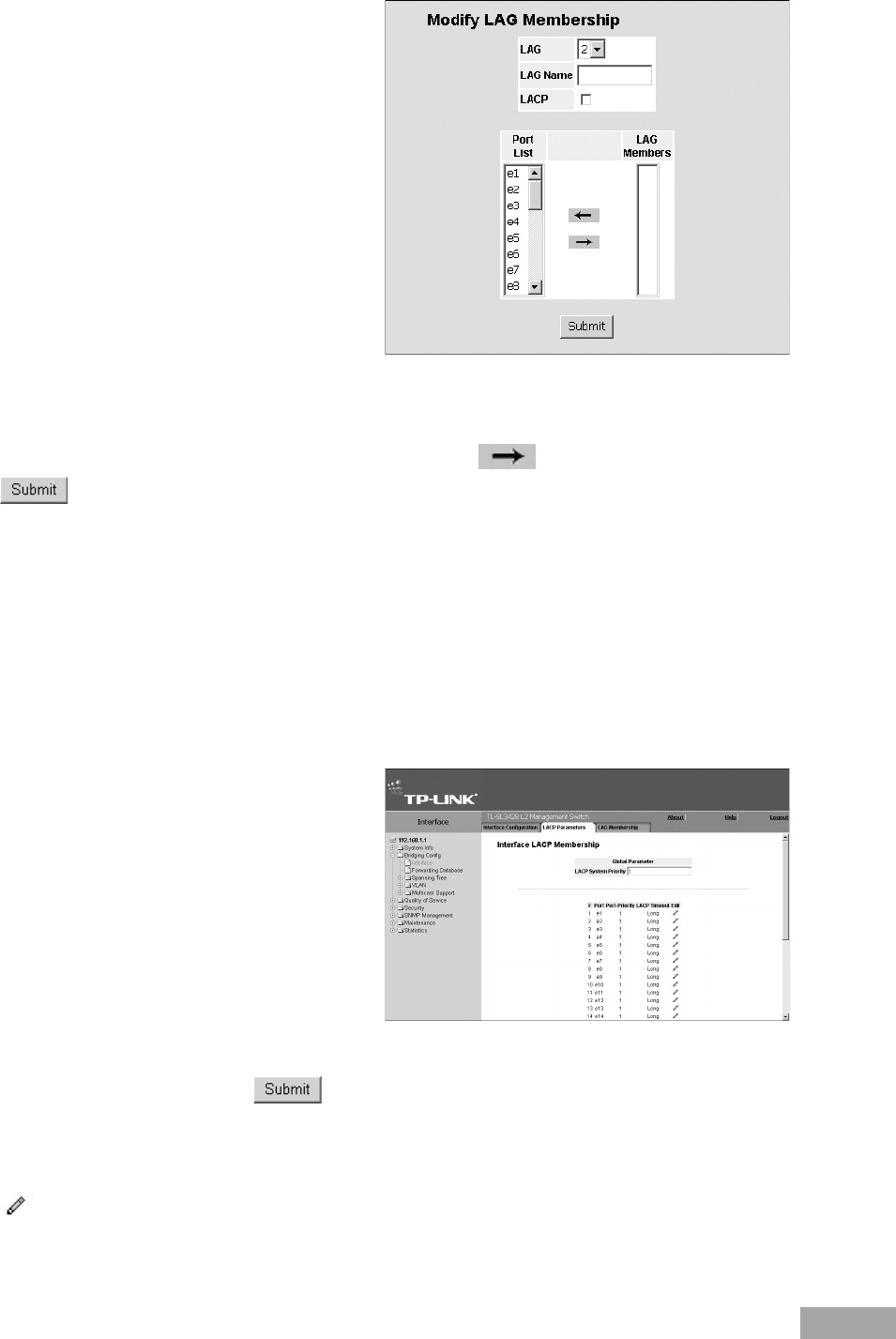
48
49
Figure 68: LAG Membership Settings Page
The LAG Membership Settings Page contains the following
elds:
LAG — Contains a user-dened drop-down LAG list.
Lag Name — Displays the user-dened LAG name.
LACP — Indicates if LACP is dened on the LAG. The
possible eld values are:
– Enable — Enables LACP on the LAG.
– Disable — Disables LACP on the LAG. This is the
default value.
Port List — Displays a list of ports. Ports in the Port List
can be added to the LAG.
LAG Members — Displays the list of the ports included
in the LAG.
2. Dene the LAG elds for the LAG port.
3. Click ports in the Port List and add the ports to the LAG Members list, using .
4. Click . The interface LAG membership properties are modied, and the device is updated.
7.2.2 Conguring LACP
LAG ports can contain different media types if the ports are operating at the same speed. Aggregated links can be set
up manually or automatically established by enabling LACP on the relevant links. Aggregate ports can be linked into link-
aggregation port-groups. Each group is comprised of ports with the same speed. The LACP Parameters Page contains elds
for conguring LACP LAGs.
To view and congure LACP:
1. Click System > Bridging Cong > Interface > LACP Parameters. The LACP Parameters Page opens:
Figure 69: LACP Parameters Page
The LACP Parameters Page contains the following elds:
LACP System Priority — Specifies system priority
value. The eld range is 1-65535. The eld default is 1.
Port — Displays the port number to which timeout and
priority values are assigned.
Port Priority — Displays the LACP priority value for the
port. The eld range is 1-65535.
LACP Timeout — Displays the administrative LACP
timeout.
2. Dene the LACP System Priority and click . The system priority for LACP is saved and the device is updated.
To modify LACP parameters:
1. Click System > Bridging Cong > Interface > LACP Parameters. The LACP Parameters Page opens.
2. Click . The LACP Parameters Settings Page opens:


















